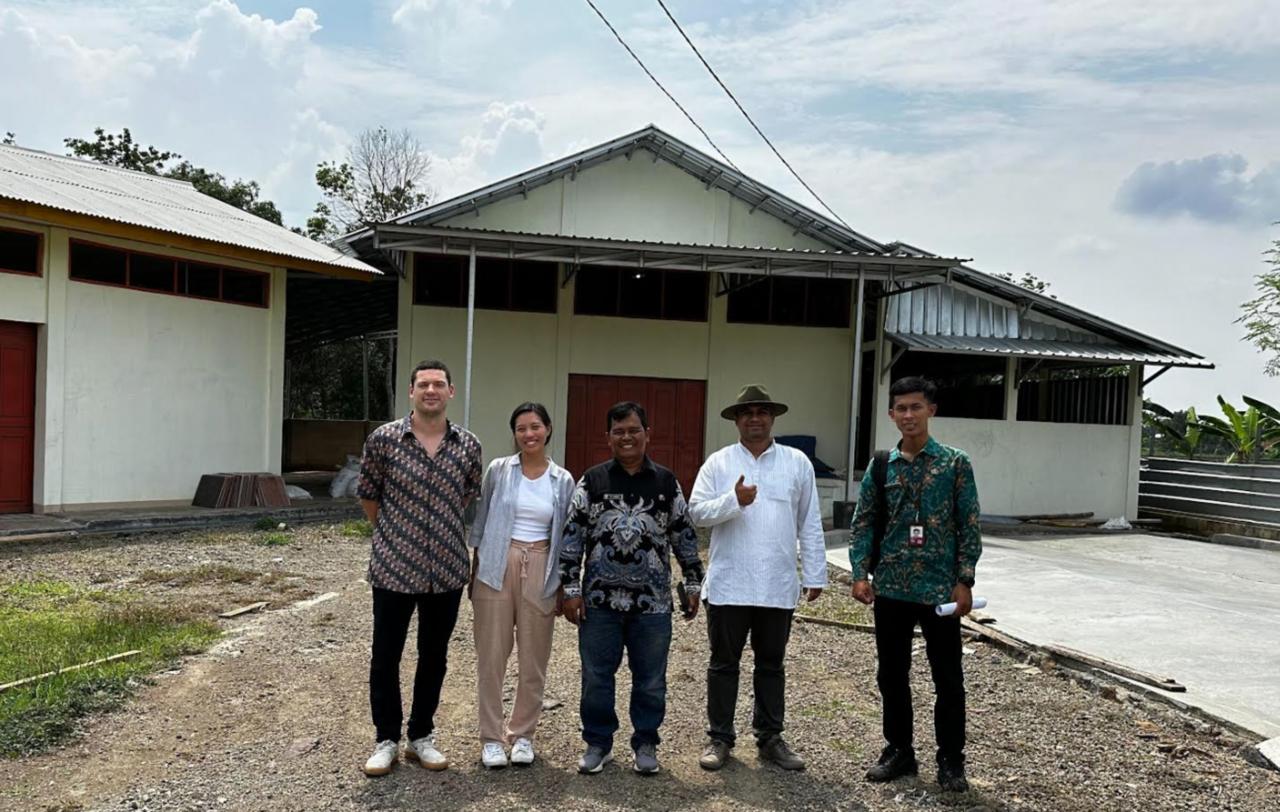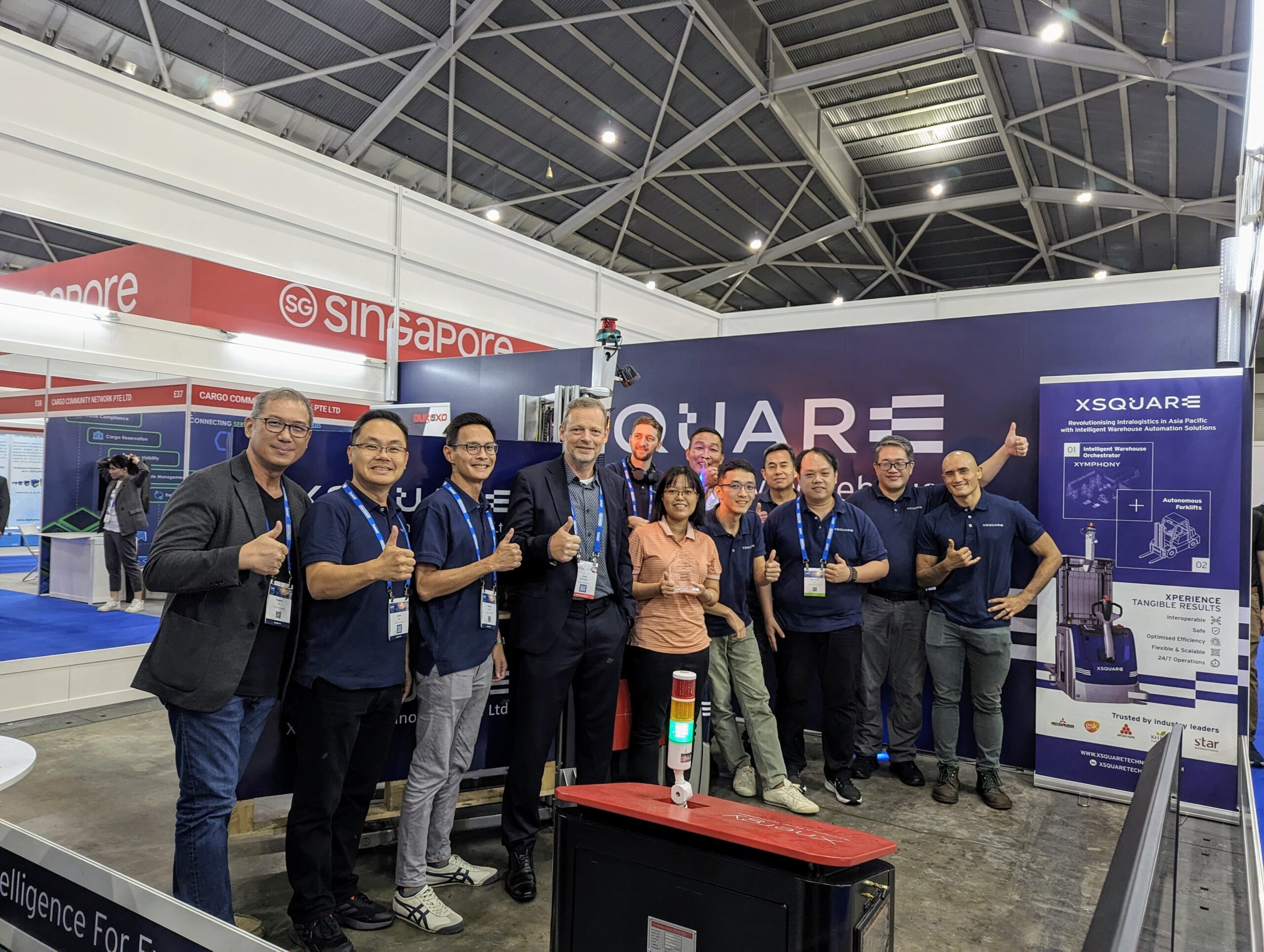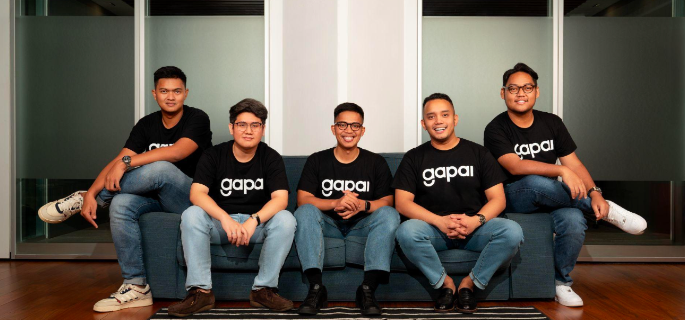Think about this: after water, concrete is the most widely used material in the world. It is everywhere–in roads, bridges, tunnels, buildings, and other infrastructure. All this modern development, however, presents a big problem.
Producing cement, the key ingredient in concrete, releases harmful carbon dioxide, making up 8% of global carbon emissions.
We can’t deny how much the world depends on concrete. However, reducing the industry’s emissions has proven to be a tall order. While many technologies have emerged to tackle this issue, scaling them up–without compromising concrete’s strength, durability, and price–has been a major challenge.
Enter New Zealand-based Neocrete, a startup that aims to transform the construction industry.
Neocrete nanoengineered an “activator” that, when used with pozzolanic materials like volcanic ash (dating back to Roman times), can effectively replace cement in concrete. This not only reduces carbon emissions—without compromising strength at any age—but also enhances durability against climate change effects like flooding. Founded by Zarina Bazoeva and Matt Kennedy-Good in 2018, Neocrete recently raised a US$4 million Seed round, led by Wavemaker Partners.
Neocrete’s activator is potent. It only needs to be added at less than 0.5% of the total concrete mix to enable low-carbon materials like volcanic ash to replace up to 50% of cement. Despite the minimal activator required, it increases the quality of concrete by enabling these pozzolanic materials to create a tighter microstructure than regular cement, making the concrete watertight.
Neocrete’s product has undergone independent testing by organisations like New Zealand’s building industry research association BRANZ, certifying its durability and watertightness.
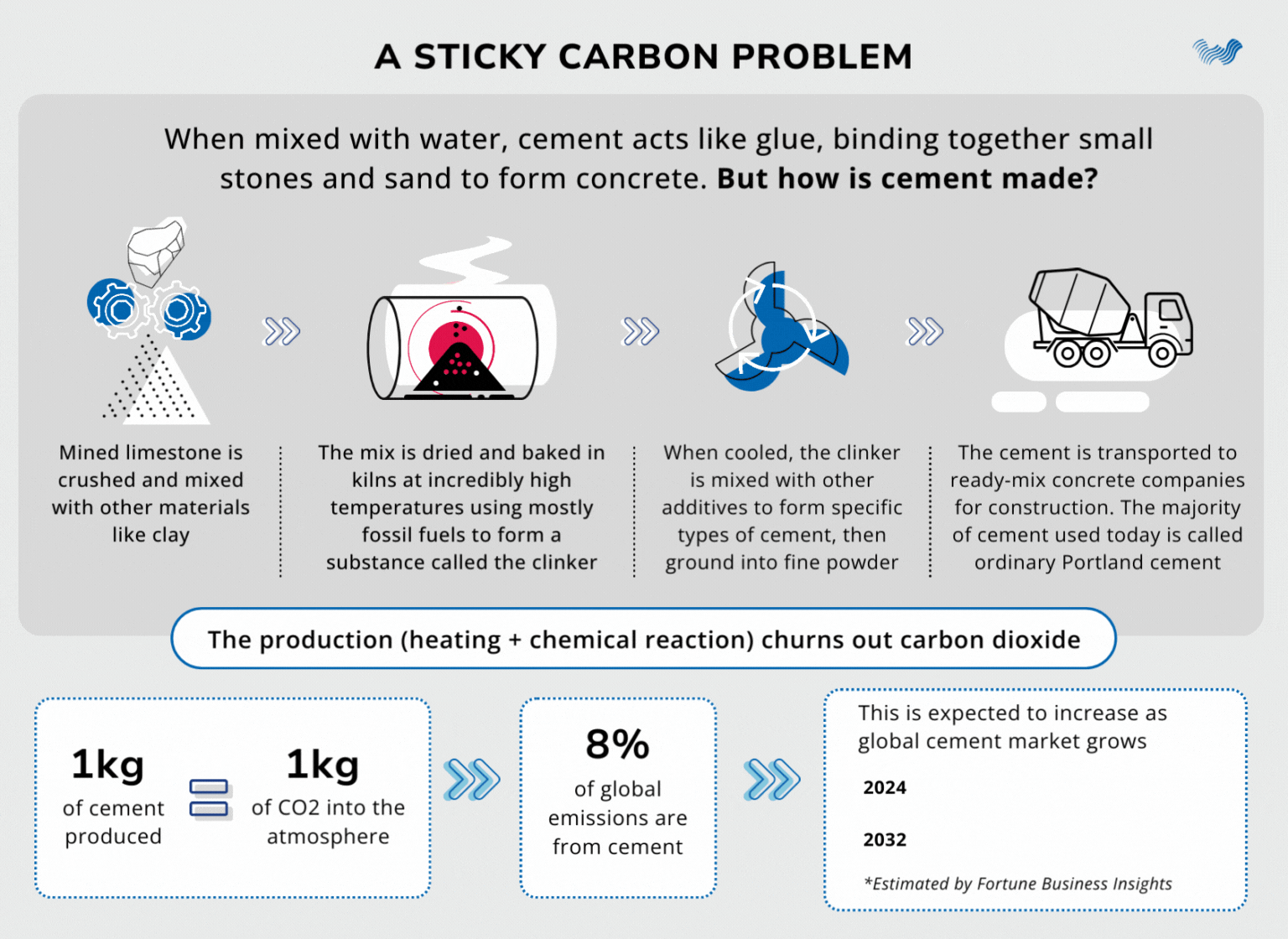
Neocrete aims to enable the production of carbon-zero concrete by 2027 and reduce global carbon emissions by 1% overall by 2033.
Why Neocrete
As the world increasingly focuses on cutting carbon footprints, various green solutions have popped up to reduce emissions from cement production. There’s technology that captures the carbon dioxide produced during the process and stores it underground, or uses it elsewhere. But there’s a hitch: it can be challenging to scale and too costly. To bring about noticeable change, this carbon capture infrastructure needs to be installed at cement plants all around, which will take a lot of capital and time to pull off.
Meantime, some companies are innovating with low-carbon cement alternatives, claiming to produce cement that’s structurally identical to regular cement but carbon-neutral. These companies replace a key ingredient in standard cement so that, instead of emitting carbon dioxide as a by-product during heating, it produces a by-product that absorbs carbon from the atmosphere. This also cancels out the carbon produced from using fossil fuels for heating. Even if these technologies overcome significant scientific challenges, the downside is they still require capital-intensive plant infrastructure similar to traditional cement plants, making them expensive to scale, operate, and maintain. To compete on price with regular cement, these businesses will need to raise massive amounts of capital to scale up.
Then there are other technologies that offer low-carbon cement replacements at a good cost similar to Neocrete. However, they often don’t create early concrete strength comparable to conventional cement, hindering their widespread adoption by the construction industry.
In contrast, Neocrete’s activator provides that early strength with relatively minimal infrastructure and energy requirements, so it’s both low-cost and low-carbon. Moreover, pozzolanic materials don’t need heating or much energy to process, keeping things low-carbon all around.
“We can produce the activator at a relatively low cost, meaning that even at a moderate scale, we can match the cost of cement,” Zarina said. “When people replace cement with our lower-carbon cement alternative, they also won’t need to pay a green premium,” she added, referring to the additional cost typically associated with choosing sustainable alternatives over conventional solutions.
But what’s truly exciting about Neocrete is that it’s not just betting on one technology to decarbonise cement (Neocrete activator + volcanic ash). Its activator can also be used with cement and other cement-like materials to “significantly improve their strength or reduce their processing cost,” meaning it can help other technologies achieve the necessary performance to replace cement.
“In this respect, our technology can become an enabler for those emerging materials to be adopted,” Zarina explained.
Falling in love with concrete
Zarina was working as a business analyst when she met Matt, and one of their chats brought up the Christchurch earthquake, a 6.3-magnitude tremor that caused severe damage in New Zealand, including collapsed bridges and buildings, and roads torn apart by soil liquefaction and flooding.
“We started talking about building materials and thought maybe we could have stronger and more durable concrete here,” Zarina recalled.
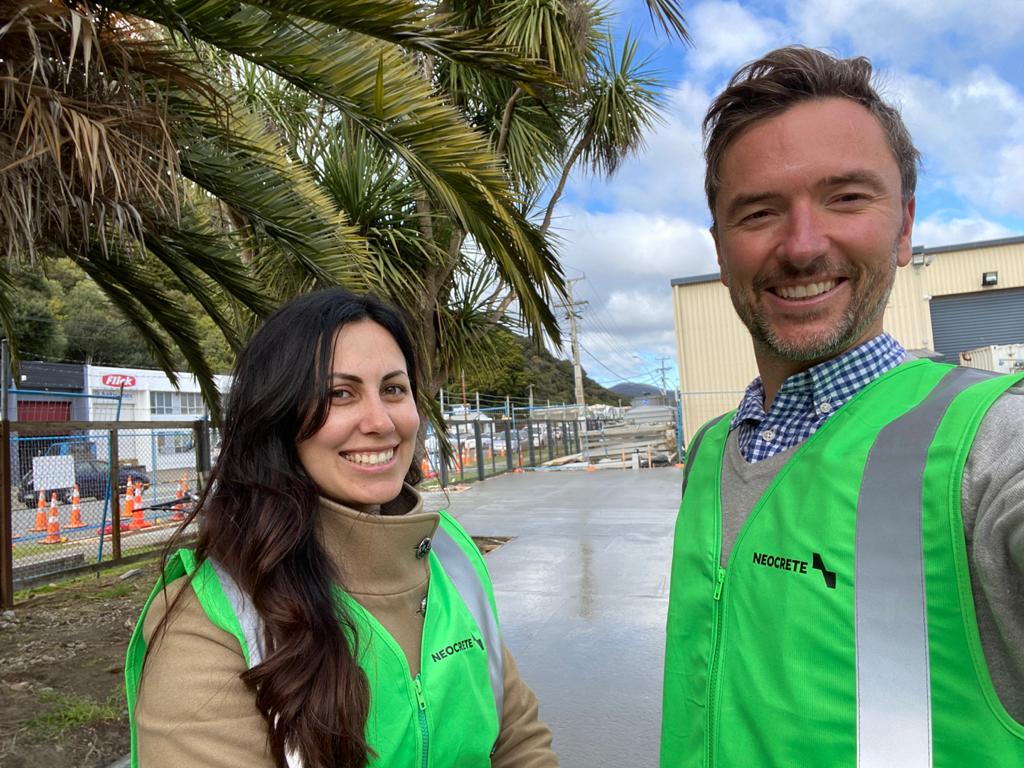
Zarina brings 15 years of experience as a business and financial advisor across organisations in New Zealand and internationally, including KPMG and Discovery Inc. As for Matt, he’s got his roots in commercial law, but has always been passionate about sustainability and the blend between business and tech. Notably, he served as a Goldman Sachs lawyer and as a director for a New Zealand government agency focused on growing small businesses.
The duo joined forces to advance a technology pioneered by Zarina’s father, Russian-born Dr. Oleg Bazoev, who’s known for an additive that has been used for more resilient infrastructure in Russia since the early 2000s.
Inspired by her father, a civil engineering professor at a university in North Ossetia-Alania, Zarina’s fascination with concrete began in Kindergarten. She recalls peeping through a keyhole watching her dad do his thing, whether it was teaching a class or tinkering away in his lab at the university.
“I fell in love with concrete because the way he would explain it to a child was just fascinating,” said Zarina.
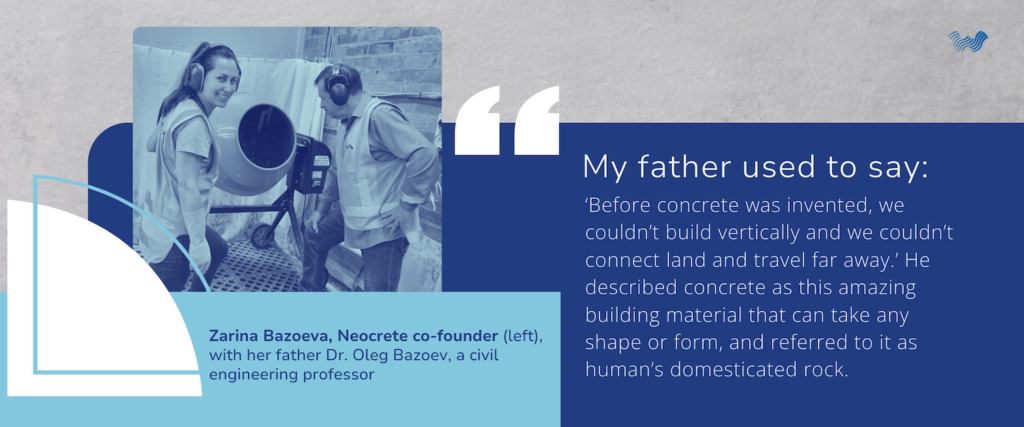
Quick path to commercialisation
Neocrete is already trialling its product with more than 10 customers globally, including in New Zealand, where it has been used in an award-winning low-rise apartment building and in house slabs produced by a residential building company.
Neocrete is about to begin trialling its technology with members of the Global Cement and Concrete Association after being named a finalist in the association’s 2023 Innovandi Challenge, which aims to help accelerate innovations toward achieving a net-zero carbon future for the concrete industry.
The company was also named in the 2023 Cleantech 50 To Watch, an annual list of global early-stage private companies excelling in sustainable innovation.
Just last month, Neocrete completed its Seed round, raising US$4 million (NZ$6.5 million), surpassing its original NZ$4 million target, thanks to strong investor interest globally. Wavemaker Partners led the round, while other investors included New Zealand Green Investment Finance, Velocity Ventures, Icehouse Ventures, and high-net-worth individuals like Property Guru co-founder Stephen Melhuish and Douglas Parker. Brothers Jonathon and Nicholas Cocks, who are limited partners in Wavemaker, ended up investing in the round themselves after trialling Neocrete’s activator in their ready-mix concrete business in Brunei.
Neocrete’s technology has also won competitive grants, including the new Ārohia Innovation Trailblazer grant (Callaghan Innovation), where the company was one of the first recipients to receive the grant
The funds are aiding Neocrete’s pre-commercialisation trial projects and its upcoming pilot plant, set to start producing in June. Neocrete will continue to run its two R&D labs in Auckland to continue developing more potent new generations of its activator, while the plant will ramp up production of it for trials.
Although Neocrete’s product outperforms regular cement, the biggest challenge lies in building trust in cement alternatives.
Ordinary Portland cement, the most common type, has been used since the 19th century, meaning architects and engineers have a deep understanding of how it works. Given the high stakes in construction, where lives are at risk if a building isn’t sturdy enough, it’s no surprise the industry is cautious about adopting new materials.
However, Neocrete is optimistic about lowering the barrier of entry soon, with the ongoing trials together with independent testing. The company aims to launch commercial pilots by the end of 2024 and hopefully, commercial sales the following year in New Zealand and beyond.
“We’re certainly globally focused,” Matt said. “New Zealand is only 0.02% of the cement and concrete market, so it’s not a big market for decarbonising global concrete. We’re focused on Asia, where 75% of concrete is currently poured, California, and Europe.”
Zarina is hopeful that Neocrete could be the missing piece in the puzzle of decarbonising cement.
“We’ll help enable those other solutions to work–we think it’s going to be a lot of different solutions that will eventually decarbonise the industry. It’s not just going to be one, and Neocrete can help all of them to get there faster,” she said. “We think that the Green Revolution, decarbonising the world, can start with concrete.”

